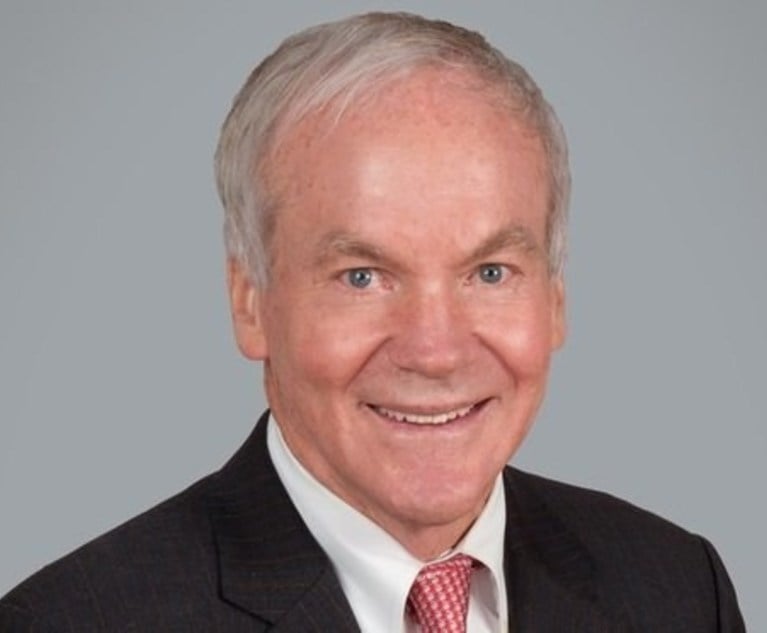 John L.A. Lyddane
John L.A. Lyddane Access to Evidence and the Physician-Patient Privilege
The realities of discovery in complex cases create situations in which access to vital information is foreclosed simply because there is insufficient data to allow for an evidence-based decision.
March 14, 2022 at 12:15 PM
8 minute read
Virtually every medical malpractice case presents issues as to the permissible extent of discovery of the plaintiff's medical records. CPLR §3101, requiring "full disclosure of all matter material and necessary in the prosecution or defense of an action," and CPLR §4504, codifying the physician-patient privilege, require reconciliation on specific facts. The oft cited decision of the Court of Appeals in Koump v. Smith, 25 N.Y.2d 287 (1969), established long ago that plaintiffs who affirmatively place their physical or mental condition in controversy waive the doctor-patient privilege. As amplified by the court in Dillenbeck v. Hess, 73 N.Y.2d 278 (1989), "[A] party should not be permitted to affirmatively assert a medical condition in seeking damages … while simultaneously relying on the confidential physician-patient relationship as a sword to thwart the opposition in its efforts to uncover facts critical to disputing the party's claim." Id. at 287. In the ever-increasing complexity of malpractice litigation, this reconciliation often requires more skill than is available to the task.
As a result, there are instances in which the defense is hastily limited to obtaining the records of treatment to the plaintiff's left foot, because at the time of the preliminary conference there is insufficient information to demonstrate that there are other aspects of the patient's treatment which have a material bearing upon the injuries sustained, the treatment required, and the extent of damages which require compensation. The appellate courts have consistently held that the decisions on access to medical records are to be made on the basis of in camera review of the records and the materiality of their content to the claims in the case. See Cynthia B. v. New Rochelle Hospital, 60 N.Y.2d 452, 461 (1983), and James v. 1620 Westchester Ave., 147 A.D.2d 575 (1st Dep't 2017). That option is frequently premature when the judge supervising discovery is called upon to make a ruling early in the course of the litigation. The defense at that point has no access to the records in issue and no ability to obtain the expert witness input to explain how the records are relevant.
This content has been archived. It is available through our partners, LexisNexis® and Bloomberg Law.
To view this content, please continue to their sites.
Not a Lexis Subscriber?
Subscribe Now
Not a Bloomberg Law Subscriber?
Subscribe Now
NOT FOR REPRINT
© 2025 ALM Global, LLC, All Rights Reserved. Request academic re-use from www.copyright.com. All other uses, submit a request to [email protected]. For more information visit Asset & Logo Licensing.
You Might Like
View All

‘Second’ Time’s a Charm? The Second Circuit Reaffirms the Contours of the Special Interest Beneficiary Standing Rule

Attorney Fee Reimbursement for Non-Party Subpoena Recipients Under CPLR 3122(d)
6 minute readTrending Stories
- 1'It's Not Going to Be Pretty': PayPal, Capital One Face Novel Class Actions Over 'Poaching' Commissions Owed Influencers
- 211th Circuit Rejects Trump's Emergency Request as DOJ Prepares to Release Special Counsel's Final Report
- 3Supreme Court Takes Up Challenge to ACA Task Force
- 4'Tragedy of Unspeakable Proportions:' Could Edison, DWP, Face Lawsuits Over LA Wildfires?
- 5Meta Pulls Plug on DEI Programs
Who Got The Work
Michael G. Bongiorno, Andrew Scott Dulberg and Elizabeth E. Driscoll from Wilmer Cutler Pickering Hale and Dorr have stepped in to represent Symbotic Inc., an A.I.-enabled technology platform that focuses on increasing supply chain efficiency, and other defendants in a pending shareholder derivative lawsuit. The case, filed Oct. 2 in Massachusetts District Court by the Brown Law Firm on behalf of Stephen Austen, accuses certain officers and directors of misleading investors in regard to Symbotic's potential for margin growth by failing to disclose that the company was not equipped to timely deploy its systems or manage expenses through project delays. The case, assigned to U.S. District Judge Nathaniel M. Gorton, is 1:24-cv-12522, Austen v. Cohen et al.
Who Got The Work
Edmund Polubinski and Marie Killmond of Davis Polk & Wardwell have entered appearances for data platform software development company MongoDB and other defendants in a pending shareholder derivative lawsuit. The action, filed Oct. 7 in New York Southern District Court by the Brown Law Firm, accuses the company's directors and/or officers of falsely expressing confidence in the company’s restructuring of its sales incentive plan and downplaying the severity of decreases in its upfront commitments. The case is 1:24-cv-07594, Roy v. Ittycheria et al.
Who Got The Work
Amy O. Bruchs and Kurt F. Ellison of Michael Best & Friedrich have entered appearances for Epic Systems Corp. in a pending employment discrimination lawsuit. The suit was filed Sept. 7 in Wisconsin Western District Court by Levine Eisberner LLC and Siri & Glimstad on behalf of a project manager who claims that he was wrongfully terminated after applying for a religious exemption to the defendant's COVID-19 vaccine mandate. The case, assigned to U.S. Magistrate Judge Anita Marie Boor, is 3:24-cv-00630, Secker, Nathan v. Epic Systems Corporation.
Who Got The Work
David X. Sullivan, Thomas J. Finn and Gregory A. Hall from McCarter & English have entered appearances for Sunrun Installation Services in a pending civil rights lawsuit. The complaint was filed Sept. 4 in Connecticut District Court by attorney Robert M. Berke on behalf of former employee George Edward Steins, who was arrested and charged with employing an unregistered home improvement salesperson. The complaint alleges that had Sunrun informed the Connecticut Department of Consumer Protection that the plaintiff's employment had ended in 2017 and that he no longer held Sunrun's home improvement contractor license, he would not have been hit with charges, which were dismissed in May 2024. The case, assigned to U.S. District Judge Jeffrey A. Meyer, is 3:24-cv-01423, Steins v. Sunrun, Inc. et al.
Who Got The Work
Greenberg Traurig shareholder Joshua L. Raskin has entered an appearance for boohoo.com UK Ltd. in a pending patent infringement lawsuit. The suit, filed Sept. 3 in Texas Eastern District Court by Rozier Hardt McDonough on behalf of Alto Dynamics, asserts five patents related to an online shopping platform. The case, assigned to U.S. District Judge Rodney Gilstrap, is 2:24-cv-00719, Alto Dynamics, LLC v. boohoo.com UK Limited.
Featured Firms
Law Offices of Gary Martin Hays & Associates, P.C.
(470) 294-1674
Law Offices of Mark E. Salomone
(857) 444-6468
Smith & Hassler
(713) 739-1250







